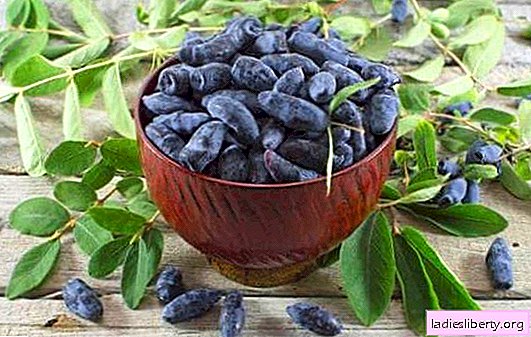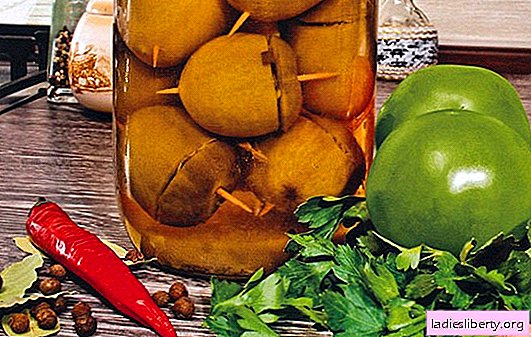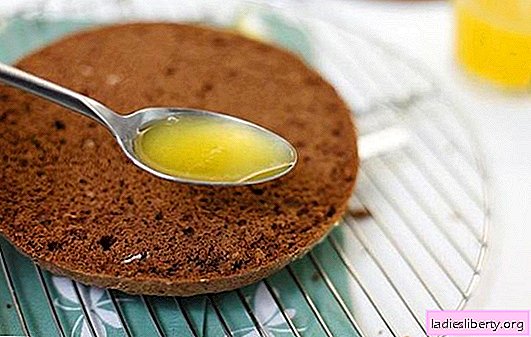
Honeysuckle is a widespread deciduous shrub in the northern part of Russia, with small oblong berries, dark blue in color and a bluish bloom. There are many varieties of this plant, but only edible has healing properties, has a rich mineral composition, is a storehouse of vitamins. Honeysuckle is famous for its fertility, from one bush you can collect 1-2 kg of diet berries. Their taste is sweet and sour, slightly reminiscent of blueberries, and in hot climates the fruits are sweeter, with tart bitterness, and cool conditions add acidity and vitamin C.
Honeysuckle composition
Due to its rich chemical composition, honeysuckle is popular in folk medicine, as it is a good antiseptic, has an astringent and diuretic effect, and helps with intestinal problems. Berries contain almost the entire periodic table: magnesium and manganese, potassium and iron, zinc and copper, iodine, silicon and many other minerals. Among the natural components are also abundant:
· Organic acids, including malic, citric and oxalic;
Pectin substances and anthocyanins;
Vitamins A, C, Group B;
Tannins
Ethers
Sugary substances: glucose, sucrose, fructose.
Such a list of substances, when handled correctly, can be of great benefit to the human body.
Honeysuckle diet
Calorie content of fruits is about 30 kcal per 100 g of product, which is of great interest for nutrition. The lack of proteins and fats, with sufficient nutrition, contributes to effective weight loss, so honeysuckle, as a component, is often used in a variety of diets. As a main product in a healthy diet, the berry is not suitable, but as a snack or morning supplement to cereals, cottage cheese, cereals, it is very tasty and healthy. With its help, they fight obesity, vitamin deficiency, and decreased intestinal motility. In addition to low-calorie content, several other properties should be noted, useful for those who want to lose weight:
- diuretic, which allows you to cleanse the body and increase fluid intake;
- normalizes metabolic processes;
- suppresses hunger and unregulated appetite;
- beneficial effect on the nervous system;
- supplies the body with nutrients.
For lovers of emergency berry diets, when for a short time you need to tidy up your body, it is advisable to consult a specialist nutritionist. Although honeysuckle has no particular contraindications, uncontrolled consumption can harm the body.
Honeysuckle in medicine
This product is used in traditional and traditional medicine in almost all countries where the shrub itself grows. Recipes, where among the ingredients you can find berries, leaves, even the bark of this shrub, can already be found in ancient Chinese treatises, and in Korea at the scientific level, the effectiveness of individual parts of the plant in the fight against bacteria and viruses has been established.
The beneficial effect of using honeysuckle is achieved with a wide range of diseases - from a common cold to problems with the cardiovascular system. Fruits and leaves bring benefits when:
- mental and physical exhaustion;
- poor or lack of appetite;
- diseases of the kidneys and genitourinary system;
- colds, as an expectorant;
- Anemia (increases the number of white blood cells in the blood);
- atherosclerosis (strengthens the walls of blood vessels);
- low resistance to diseases, as an immunostimulating agent;
- digestive problems;
- high blood pressure and high heart rate.
Honeysuckle berries remove toxic substances from the body, salts of heavy metals, have a radioprotective effect, which is especially important for people living in poor eco-zones. Surprisingly, scientists have proved that the biological substances of this plant actively counteract cell tumors and are a good tool for cancer prevention.
The structure of the plant includes antioxidants, which is what cosmetologists use to make masks and creams that can improve the condition of the skin, cleanse it and even slow down aging. In the same traditional medicine, there are many recipes for the manufacture of compresses and tinctures designed to combat such unpleasant diseases as eczema and lichen. The antiseptic properties of the juice can help in the treatment of periodontitis and periodontal disease. There is considerable evidence that specially prepared honeysuckle accelerates the healing of ulcers and wounds.
Not all and not always honeysuckle is helpful
With all the advantages and useful properties of honeysuckle in its use should
use caution, otherwise the benefit may result
harm, and often substantial.
The first thing to remember is that there are several species of this shrub, and not every honeysuckle is suitable for food. If dark blue and blue-black berries are usually usable, then red, orange and yellow are literally poisonous. If you eat such a honeysuckle, and regardless of the type of processing, then this is likely to end in serious poisoning.
The second point to consider is the possibility of individual intolerance. Even edible varieties can cause allergic reactions, gastrointestinal upsets, and so on. Therefore, if this is your first experience with eating honeysuckle, then limit yourself to very small doses to make sure the favor of your particular organism. And in general, you should not abuse this berry in principle, since with an overdose, it is precisely those very transformations of the beneficial properties of honeysuckle that are harmful.
When honeysuckle is harmful
Here are a few points when the damage from honeysuckle is likely:
· We mentioned that this product can increase pressure. Accordingly, people with chronic hypertension should not eat it, especially in large quantities.
· The hardening properties of honeysuckle also increase in proportion to the amount. That is, in one situation, it will help to overcome diarrhea, but with abuse and even just with the normal state of the gastrointestinal tract will lead to constipation
· The berry contains a lot of active acids, which means for those who have increased
acidity of the stomach, and especially gastritis or an ulcer, it does not fit
Finally, it is worth remembering that all the useful properties of honeysuckle are usually
projected onto the average adult with normal health and
immunity, therefore, certain categories of people should observe the limit
caution or completely exclude it from the diet. At risk include people
prone to allergic reactions, children up to 5 (and even better up to 7) years and expectant mothers.
By the way, nursing mothers should also remember some aggressiveness of the product and consume it in minimal doses (ideally after consulting a doctor).
And yet, the benefits of honeysuckle are much greater than harm. And if you don’t have
personal contraindications, then eat this berry as food, and decoctions from other parts of the plant for cosmetic procedures is quite possible.











